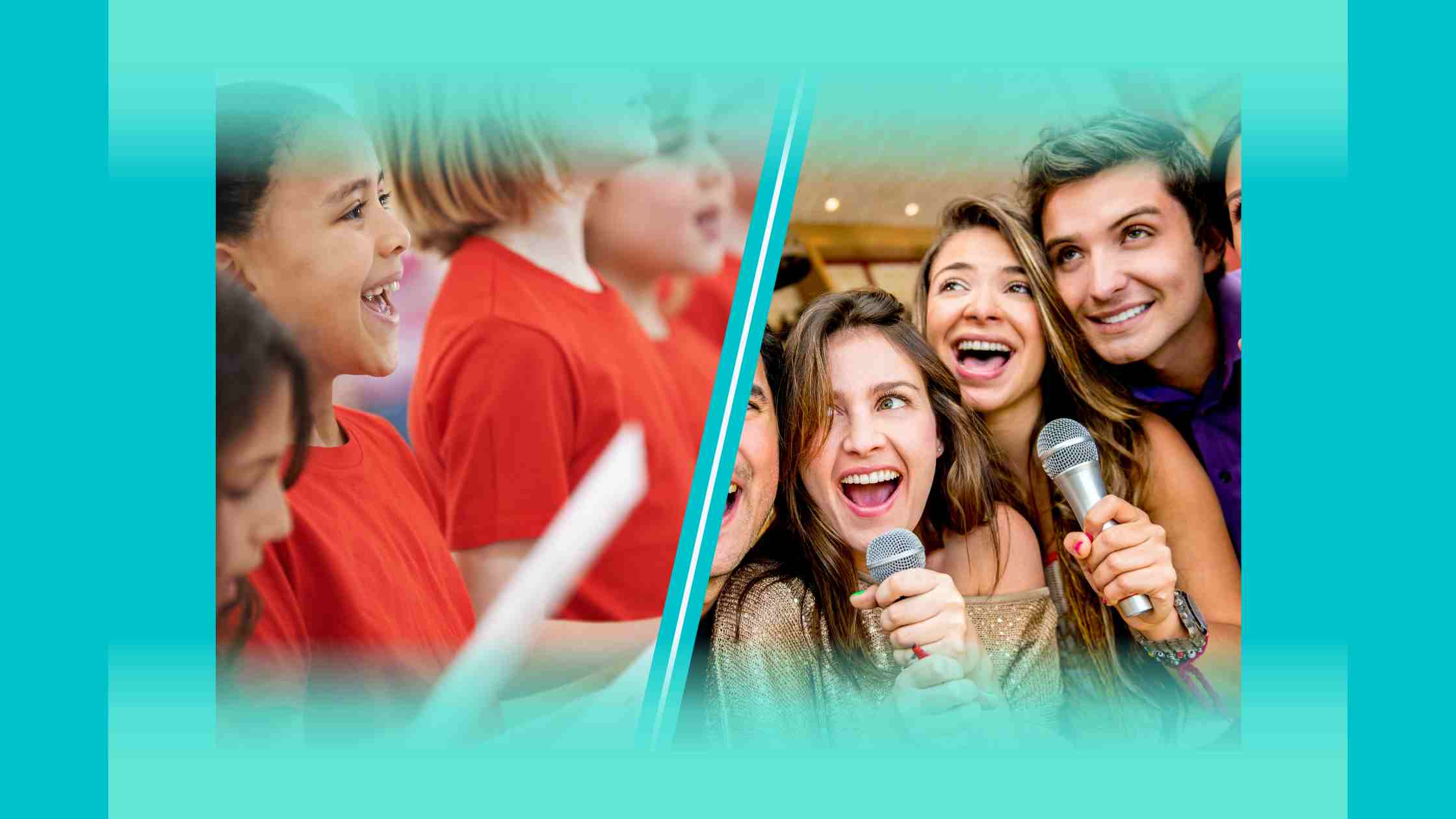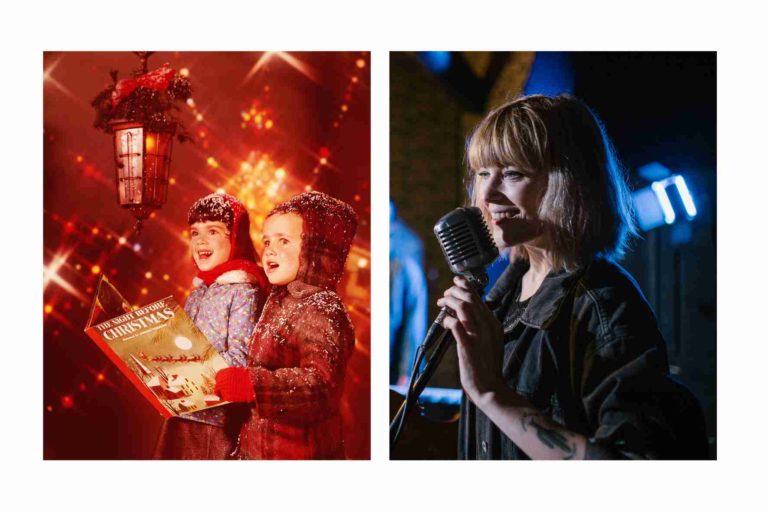I Help people sing and speak expressively and powerfully no matter the level of experience :)
HI, I'M JORGELINA
FREE 20 MIN AUDIO LESSON
Grab today my 20 min INTRO TO HOLISTIC SINGING audio lesson!
GRAB IT NOW

Learning to sing as a child VS learning to sing as an adult
In this article I explain the difference between learning to sing as a child VS learning to sing as an adult.
Many times I find out that adults that speak to me – perhaps new adult students -, have the established preconception that singing is an activity that must be done as a child, otherwise becoming a great singer is not possible.
While it is true that the longer you practice a skill you will likely become better at it, there are some misconceptions that I want to clarify.
In my singing studio in Auckland and online I teach adults primarily. While I do teach all ages and levels, my movement and energy therapies background makes me lean towards adults who bring with them quite a few stories within their bodies.
At the same time, I also prepare kids and teenagers for their Rockschool vocal exams, and so I have observed some patterns in the learning of singing that I want to share with you.
Table of Contents
‘Natural talent’ comes from different factors.

At this age and time, we are lucky enough to have many types of research about voice and singing that explains the science behind a great singer.
It is true that certain environmental and genetic aspects can mean a potential advantage in your singing training. These do not depend on you. If a child is born in a family of musicians and they are exposed to different types of music from an early age, they will probably have a much different pitch development than a child that lives in a family where music is not cherished. In the same way, a child that has been encouraged to play around music and sing/ dance along in a playful and nonjudgemental manner will have much better chances to succeed as a singer, as the child will develop a positive association with performing instead of stage fright.
In the same way, genetics might give you the gift (or the curse) of a resilient voice, or a face structure that help you produce a specific voice tone that happens to be a trend these days.
However, even if you are lucky enough to get all the best conditions and the best possible environment, that will only give you a potential instrument. In the same way, if you are given the best guitar in the world as a gift, just because you own it doesn’t mean that you will play it well or make it sound nice.
Singing is the same. In my career as a singing teacher, I have seen many children with the best potential, but a total lack of will to practice, no interest in paying attention, and many times quitting too soon due to multiple activities. If that child doesn’t develop and nurture their singing, no results will come. Singing skill doesn’t get developed with no training.
On the other hand, I have taught many adults with no music background at all, and less-than-ideal conditions for creative activities. And I have had the pleasure of watching them grow as singers from absolute beginners to very competent contemporary singers, through dedication, regularity, and many times transformation in other aspects of their lives.
So that’s the first thing. To become great as a singer you have to be bigger than your environment and your genetics. If you weren’t born with the voice of your dreams, you might have to train a little more than other people. So what? What’s so bad about having a different timing?
learning to sing as a child VS learning to sing as an adult

In my singing studio, we teach both kids and adults, however, the methodology we use for each is quite different and that is one of the main differences between learning to sing as a child VS learning to sing as an adult
For kids and teens, we choose to train with the Rockschool Vocal Syllabus, an international examination board that trains contemporary musicians. We choose this syllabus because the quality is great and very complete, but also because I have observed that kids and teens tend to learn singing better (at least in my experience) and more efficiently when there is an organized system such as the grades of the syllabus.
In my experience, getting a child to practice is not an easy task. Singing is an activity that requires regular practice, daily if possible, and without it, progress is really slow. With an organized syllabus getting the children motivated to practice is easier because they have a clear goal they are working towards.
On the other hand, with the adults, we don’t work with a structured method as every adult brings very different bodies (instruments) to the lesson. With adults also teaching voice technique in a personalized way is much easier because adults usually focus for longer but are also interested in the process. They ask questions and are curious. It is a bit more about co-creating the lessons.
Every adult usually comes with their own goals that they want to work towards and so the need for a syllabus is not there.
Usually, with adults a lot more introspection is involved, as well as a deeper breath, posture, and movement, as I find adults learn more and better by sensation as well as observation. So the singing lessons for adults have a little bit of a more holistic approach.
Kids, I find, learn a bit more from copying so the focus is more external than internal.
How fast can you learn to sing? Adults Vs Children

Most people think that children learn faster than adults. I am not sure how it is with other disciplines, but at least with singing, it is relative.
One thing you have to understand is that as singers our whole body is our instrument, but also our mind. Our thought patterns. And so while children can have some advantages when it comes to learning, adults have some advantages too if they learn to use them wisely 🙂
The science of learning has progressed enough for us to understand now that the environment in which a person learns plays a big role in how fast and well someone can learn a given subject. It is known now that a person learns faster when they feel safe. You might consciously know that you are safe, but if your subconscious mind perceives danger learning becomes harder. In the case of singing, this is particularly relevant. You see, when you perceive danger your throat closes. If you try to sing from this setup you will be sending two opposite instructions at the same time and the body does not cope well with that.
And this is the same for children and adults. Whether a student is a child or an adult, they need their environment to be perceived as non threatening in order to learn more efficiently. As teachers, we can do a lot to provide that environment, but not all depend on us. For example, an adult that comes with a trauma around singing will have a really hard time opening up and we will have to take it at a different pace. In the same way, sometimes a child might have an anxiety issue or they might not have the right environment to practice comfortably at home.
In the same way, even if the mindset that the person brings is not ideal, there is a lot that can be done to change that to a direction that is much more functional. For example, the work of Carol Dweck in the book “Mindset” shows how people can learn much more efficiently and even faster by changing their attitude and mindset about learning.
So in that sense, is not really about your age but about your attitude toward learning as well as of course how much practice and effort you put into it.
I have had, for example, very young students that could not clap a very simple song on time. I have also had adults who struggle with pitch and it took years for them to sing complete songs on pitch. I have also had children that are determined to learn and practice regularly, and progress steadily. And adults with no background in music but that were so keen to practice and hungry to learn that ended up becoming great singers in just a few years.
It is all relative, but the point is that it doesn’t matter how young or how old you are. If you want to learn to sing, there is a way. You will be faced with the things you can’t change (your genetics and your past circumstances), but if you are determined to learn you now know that you have much more control over your progress than you imagine.
In any case, you can’t change your past or your circumstances but you do have a great deal of control over your attitude towards learning and over your practice habits. If you can align your goals with your actions towards them, you will be unstoppable in singing and in life ;
Do you want to learn singing? Join us!
Adults (all levels) private lessons and group lessons in Auckland (Unsworth Heights area) and online.
Online training coming soon! (Get in touch)
Both our adult lessons and our online training offer holistic singing training (Auckland -North Shore, and online)
I help people to develop their voice and singing from a holistic approach. I teach vocal lessons in person in Auckland, NZ, and online. Also stay tuned for my new online singing programs!❤️
My greatest passion has always been the voice, music and energy arts.
My personal and artistic journey has led me to understand that the voice and the body are fully connected, and that includes not only the physical body but also the mental, emotional and spiritual body.
Through holistic vocal training you not only learn to become a great singer while taking care of your voice, but you also improve your mental and physical wellbeing❤️
AUCKLAND CONTEMPORARY SINGING SCHOOL - COPYRIGHT 2024 ©
PRIVACY POLICY |
Terms and conditions |
refund policy |
x
Get the CHEAT SHEET now!
Subscribe now to receive the free cheat sheet - learn to sing a song step by step!
Thank you!
You have successfully joined our subscriber list.
leave a comment